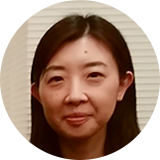Aoki had a strong motivation to train for the Tokyo Paralympics. The women's marathon for the visually impaired first entered the Games at Rio de Janeiro in 2016. That opened the way for her to prove her strength in the sport in her hometown.
She is working hard to qualify for the Tokyo Games, with help from her supporters. Her personal best marathon has clocked in at three hours and 13 minutes, and she placed fourth last year in the London race for visually impaired women runners.
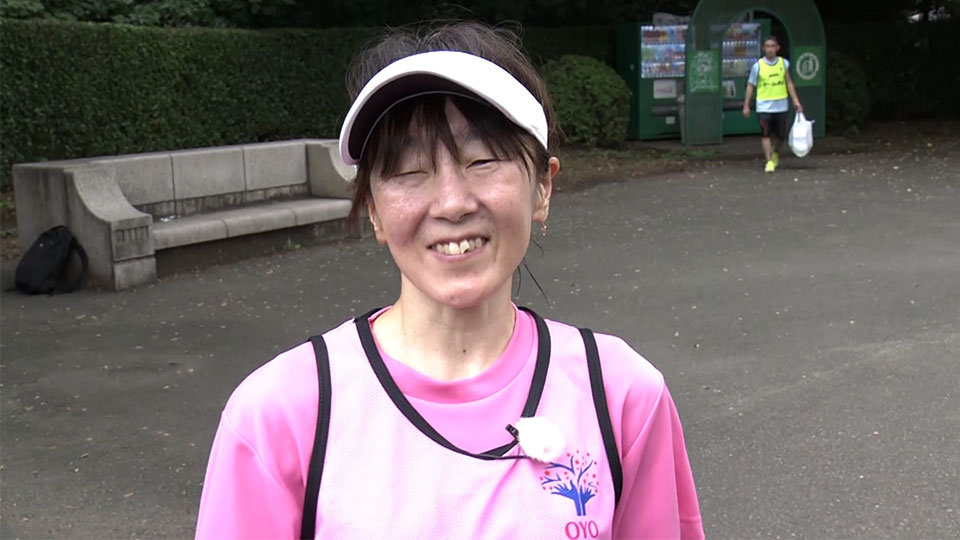
Team OYO
Oyo is her nickname and her Team OYO is guiding her through training for the 42.2-kilometer race. Aoki says she has total trust in all 30 members of the team, who work with her almost every day. She says she's really grateful to every one of them.
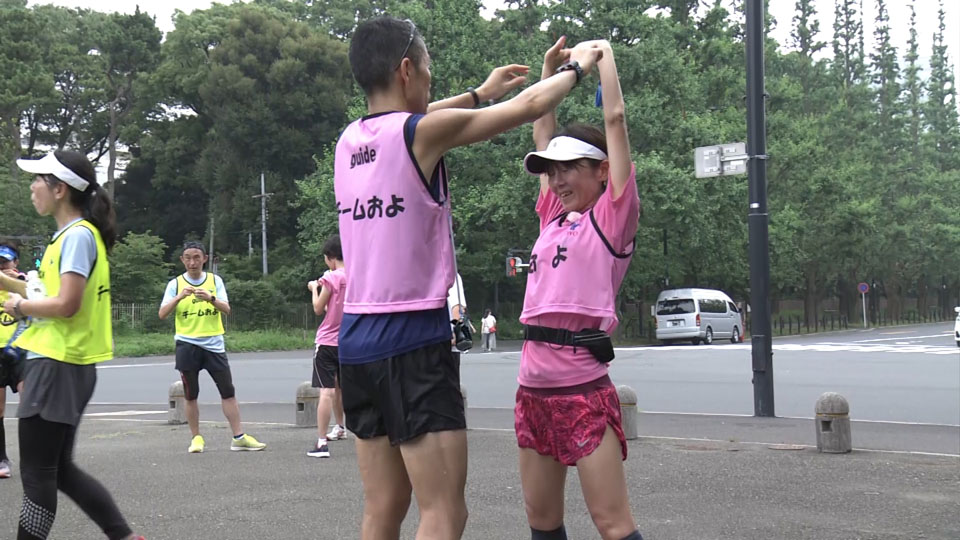
Team captain Yoshihide Fukuhara is also visually impaired. He represented Japan at the Athens Paralympics. Fukuhara says he remembers the first time he met her and saw her strong desire to run and improve. He says she just keeps on training, even if he tells her to take a break, and the training has really strengthened her legs.
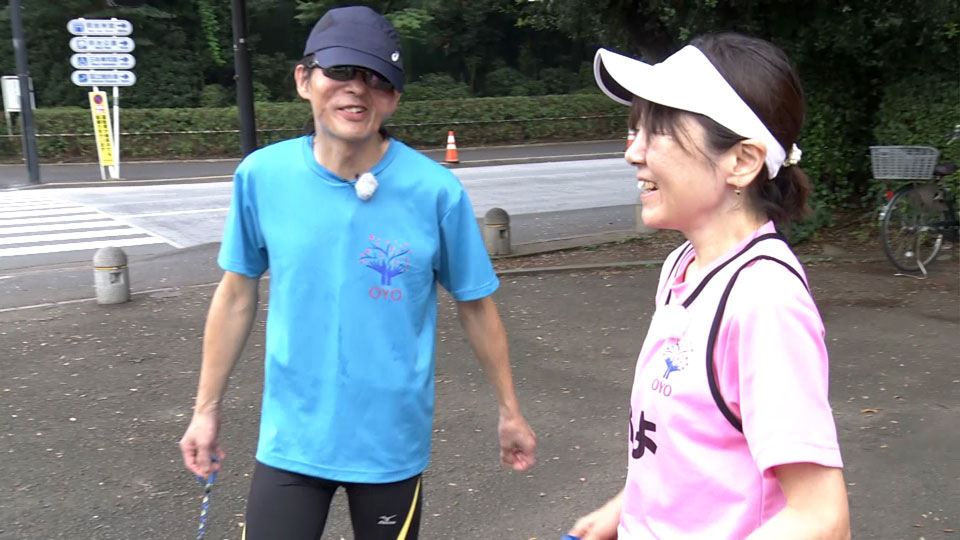
Fukuhara says he and other members of the team run with Aoki and that this practice means a lot.
He accompanies her either in front or at the rear, listening carefully to her footsteps and breathing to create the best possible training menu for the day.
Marathon Changes Life
Aoki is a full-time employee. She works on a website for people with disabilities. She says it took her a long time to feel comfortable about going out into the world.
Shortly after graduating high school, she suffered an injury resulting in a detached retina that damaged her sight. She said this made her self-conscious about how other people viewed her and that she shut herself in at home for a very long time. Eventually, she realized that she couldn't hide any longer and she started to go out. Then she made the big decision to become independent and move to Tokyo.
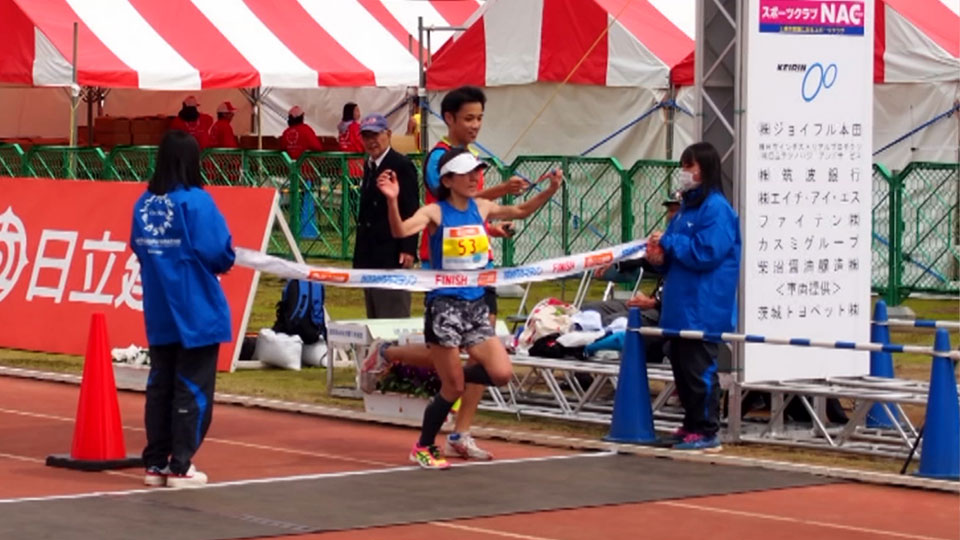
A colleague encouraged her to start running 11 years ago. She was running as a hobby at the time and enjoyed beating her own records. She improved with every race she joined. Four years ago The Japan Blind Marathon Association chose her as an elite athlete eligible for special training as a candidate to represent Japan at the Tokyo 2020 Paralympics.
Finding Guide Runners
Aoki starting training before work, from five in the morning, Monday through Friday. Her neighbor, Hiroshi Kaneko, is one of her guide runners and part of Team OYO. He takes turns guiding her daily run, but finds that organizing the schedule is getting difficult as Aoki's training gets more demanding.
Kaneko has been looking for more guide runners from among the people he meets while running himself. The difficulty of finding guide runners caused him to spread out the search, and Aoki was happy to see the network grow. The guides take pride in helping Aoki achieve her goals. Kaneko wants as much support as possible for Aoki before the Games.
When I first met Aoki in a running club five years ago, she was running just for fun and nobody imagined that she would be heading for the 2020 Tokyo Paralympics.
Now, she runs with the hope of generating more public interest in the marathon for the visually impaired. She wants to showcase it as a team sport and as an opportunity to get to know the runners and their guides.
Back from injury
But there have been roadblocks along the way. In April, Aoki had to pull out of this year's London Marathon. That race was an opportunity to qualify for the Tokyo Paralympics, but she couldn't finish it because of a leg injury and had to take a break to recover.
"Even though I have a lot of worries and I’m running out of time, I have to focus on what I'm doing right now," she said at the time. She viewed the injury as a trial that would make her tougher.
Running with the Team
After three months, she finally got the green light to try a long-distance run. It was her first big challenge since the injury. Aoki and her team ran together.
The team members took turns guiding her, swapping out every 10 kilometers. One member stood by with cold drinking water.
Aoki's pace started to slow after the 25-kilometer mark. Fukuhara took the lead, running out in front and encouraging her. "Recover your rhythm," he said. Other team members ran beside her to cheer her on. She picked up her pace and made it to the end, finishing 30 kilometers.
The team celebrated their accomplishment together. Fukuhara said he was sure this training would give Aoki more confidence after the leg injury to do the full marathon. Aoki’s heart was filled with joy.

"The team members are taking turns to help me," she said. "They're training with me. I'm running with everyone."
I sometimes join her training sessions. She always does her best, never giving up on a strenuous workout and never complaining. "Any training has meaning," she says.
She smiles after every workout and this impresses her team. I once asked her myself how she can work so hard and where she gets her energy and motivation. "I can do my best because I'm not alone," she said. "The guide runners stand by me and are always with me."
On August 25, Aoki finished third in her category at the Hokkaido Marathon trial for the Tokyo 2020 Paralympics.

